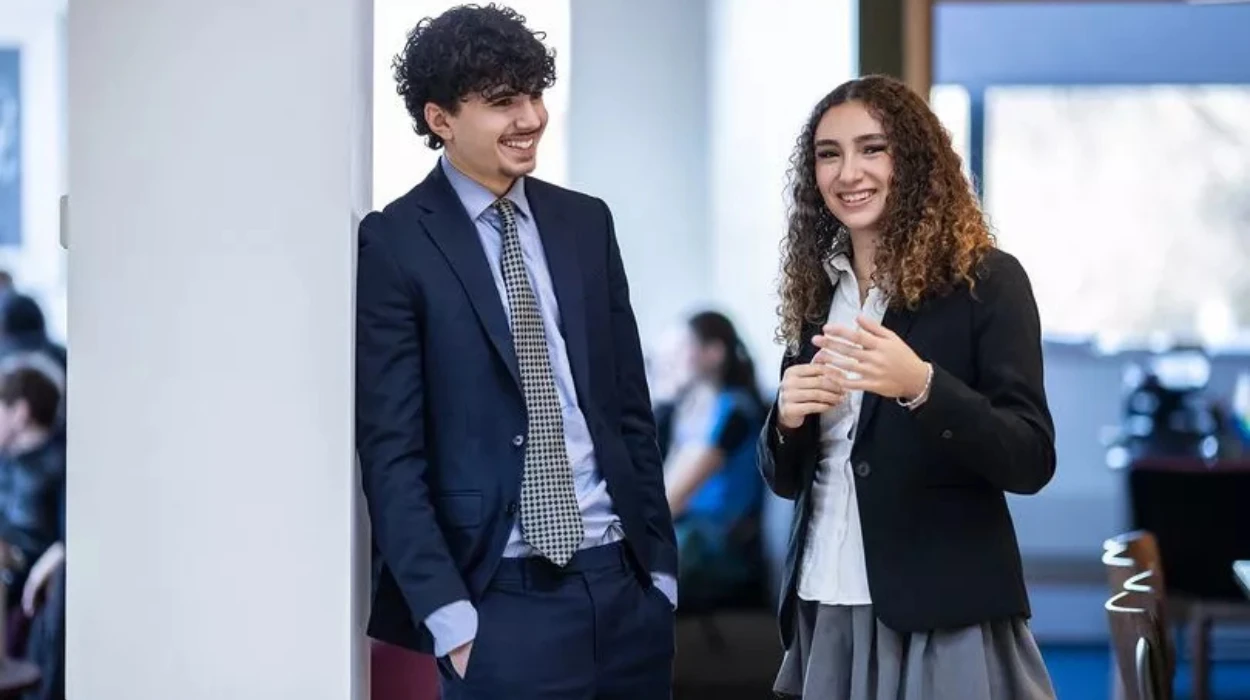Croydon (Parliament Politics Magazine) – One of Croydon’s top-performing schools will allow girls in all year groups for the first time, marking a historic shift in its admissions policy.
An all-boys secondary school in Croydon that was once selected for the title of best independent school in the UK may soon allow girls to attend.
On Monday, April 28, Trinity School, which admits students ages 10 to 18, announced that it will be implementing coeducation in all year groups.
The transition will start in September 2027 with Year 6 and Year 7 students and continue until the entire school has a mix of boys and girls by 2031.
Founded in 1882, Trinity School, located on Addiscombe Road in Shirley Park, is home to well-known alumni such EastEnders actor David Scarboro and musician Stephen Bryant, who leads the BBC Symphony Orchestra.
It is renowned for its outstanding academic achievement; in 2023, it ranked 13th among independent secondary schools in the very competitive London region, and at the 2019 TES Awards, it was shortlisted for Independent Senior School of the Year.
Although its Sixth Form has been coeducational since 2011, admitting both girls and boys, Year 6 through Year 11 is exclusively for guys. This will change starting in September 2027, though, since girls will be admitted to the cohorts of Years Six and Seven.
After that, year groups will be separated until 2031, when the entire school will be coeducational.
Trinity is using the “opportunity to extend our offer to younger girls” because of the closure of the Old Palace of John Whitgift School in Croydon, which is also a part of the John Whitgift Foundation. The school wants to give girls the same “academically ambitious environment” and “nurturing” treatment that it gives boys.
Trinity has verified that when the school transitions to coeducation, fewer boys will be enrolled. This won’t matter, though, because by 2033, there will be 1,400 students total, up from the present 1,050.
The institution will undergo major renovations in anticipation of the arrival of female students. These include renovating the Astros hockey team to a top level and constructing a new netball facility.
These kinds of schools usually include a wide variety of clubs, societies, and extracurricular activities, ranging from coding and entrepreneurship to debate and theater.
International exchanges, community service projects, and leadership chances all aid in students’ development of self-assurance and global understanding.
As the school welcomes females into all year groups, small class sizes and a helpful pastoral system guarantee individualized attention and a nurturing environment.
The school’s culture frequently revolves on its dedication to diversity, inclusivity, and student voice.
Additionally, Trinity will witness the construction of an expanded Sixth Form center, new classrooms, and a new dining facility. Nonetheless, it has declared that its curriculum will not be significantly altered because both boys and girls ought to have equal access to the same chances and experiences in the same subjects.
Trinity met extremely high standards in academic instruction, extracurricular activities, and spiritual care, according to a recent Independent Schools Inspectorate report.
Additionally, it said that “students are encouraged to be the best versions of themselves” in its “inclusive and collaborative culture.”
Alasdair Kennedy, Headmaster said:
“This is a really exciting new chapter for our school and the wider community. Extending our co-education provision reflects our longstanding commitment to nurturing outstanding young people and preparing them for their future.
By expanding what we have been doing for older students since 2011, we are building an even more diverse learning environment that benefits everyone.”
He added that from cognitive skills and critical thinking to creativity and cultures, the greater the range of perspectives and experiences that students are exposed to, the better their learning and personal development outcomes.
They are proud of our socio-economic and culturally diverse student population and look forward to extending diversity through co-education across all year groups.
What are the unique features of the school’s facilities and programs?
Diverse teaching approaches and group projects are supported in classrooms with moveable walls and furniture, multipurpose spaces, and indoor-outdoor learning zones.
These flexible settings encourage students’ participation, creativity, and teamwork.
High-speed campus-wide Wi-Fi is standard, as are interactive displays, smart boards, and 1:1 device programs (such personal computers or tablets).
Students are prepared for a digital future with access to virtual and augmented reality tools, coding suites, and dedicated computer science labs.
Hands-on STEM instruction and experimentation are made possible by state-of-the-art scientific labs, robotics and 3D printing facilities, and well-equipped technology suites.
Professional-grade theaters, music recording facilities, and specialized art studios offer venues for artistic performance and expression.
Physical development is promoted by expansive sports fields, indoor facilities, workout centers, and swimming pools.
Social areas, outdoor learning environments, and dance studios all support overall wellbeing.


